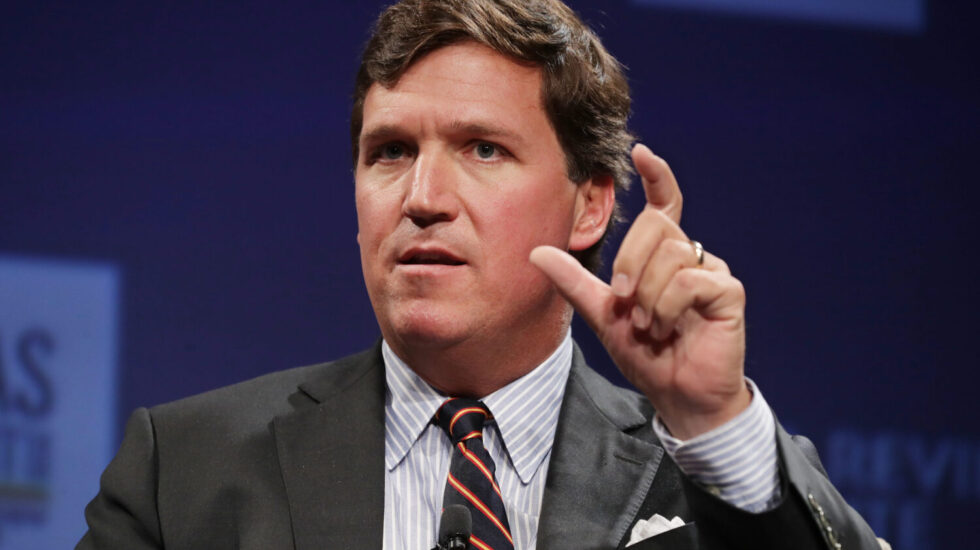A column by the New York Times’ Ben Smith that outed Fox News opinion host Tucker Carlson as a frequent (and anonymous) source of media gossip has touched off all sorts of industry navel-gazing and discussions about journalistic sources.
It’s apparently old news in Washington, D.C. media circles that Carlson has long been a leaky fountain for juicy scoops, even for outlets which he regularly trashes on his highly-rated evening show. CNN’s media reporter Brian Stelter tells Smith that “you can see Tucker’s fingerprints all over the hardcover” edition of his 2020 book “Hoax,” which lambasts Fox News for being a megaphone for Donald Trump’s many lies.
From the NYT piece:
"One question you may be asking, if you are a New York Times reader, is: Why are you exchanging texts with Tucker Carlson, the Fox News host who recently described the media at large as “cringing animals who are not worthy of respect”? And if you are a Tucker Carlson viewer, you may also be asking: How can the guy who tells you every night that the media is lying be texting with the enemy? The answer is one of Washington’s open secrets. Mr. Carlson, a proud traitor to the elite political class, spends his time when he’s not denouncing the liberal media trading gossip with them. He’s the go-to guy for sometimes-unflattering stories about Donald J. Trump and for coverage of the internal politics of Fox News (not to mention stories about Mr. Carlson himself). I won’t talk here about any off-the-record conversations I may have had with him. But 16 other journalists (none from The Times; it would put my colleagues in a weird position if I asked them) told me on background that he has been, as three of them put it, “a great source.”
Former president Donald Trump will certainly recognize Carlson’s method of playing both sides. After all, he reportedly spent a good part of his presidency feeding information to the Times’ Maggie Haberman, only to then constantly belittle her and her paper’s coverage as “fake news.” But Trump will probably not be happy to learn that Carlson is apparently the source behind several unflattering Trump stories.
This excerpt from Smith’s column highlights one such example:
"A coming book by the Wall Street Journal reporter Michael Bender, “Frankly, We Did Win This Election: The Inside Story of How Trump Lost,” includes a moment in which Mr. Carlson sends Mr. Trump’s calls to voice mail after the first presidential debate last fall, when he was criticized for repeatedly interrupting Joe Biden. When Mr. Trump finally reaches the Fox host, the book describes, verbatim, an exchange between the two men that casts Mr. Carlson in a flattering light. (“Everyone says I did a good job,” Mr. Trump tells Mr. Carlson. “I don’t know who told you that was good,” Mr. Carlson says. “It was not good.”) Mr. Bender declined to comment on the sourcing that allowed him to so precisely reconstruct a conversation between the two men." It's why some think that making it publicly known how Carlson feeds information to the same journalists he badmouths constantly on his program could hurt him within conservative circles.
Then there are those who say this situation exemplifies the problem with political news gathering. Those critics say Carlson, who regularly spread lies on his nightly program such as his recent claims that the FBI helped orchestrate the Jan. 6 Insurrection, gets off easy from too many journalists because they need to protect a key ‘source.’



